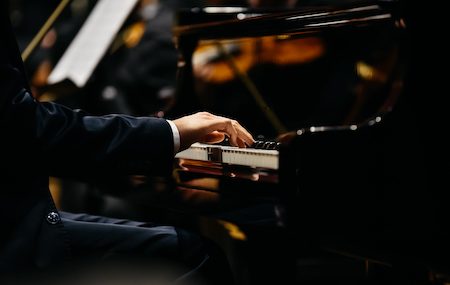One of the greatest joys is watching your child find something they are passionate about.
When they’re young, you sign up for a variety of activities, giving them options along the way. Quickly, certain activities rise while others fall off. If your child shows musical aptitude, you may consider more training. Maybe it’s time to expand their knowledge of music, and invest in a different instructor.
Often, this is where you’ll find someone saying it’s time to upgrade to a professional piano. When you purchased your first, it was with the thought of having the piano for life. Isn’t the old one “good” enough? Is there really a difference?
Before you set off to buy a new piano, take the time to understand why an instructor is coaching you to move forward with a professional piano. What’s the difference?
Your starting point
Unless you had piano training as a child, you might have purchased your first piano based on price alone. Did you pick one up at a big box store? Or find something inexpensive online? Depending on the piano currently inside your home, it might not have the proper touch. It’s the number one reason instructors coach their students on upgrading.
Piano touch has to do with the way you connect with the keys, and the sound it produces. Touch has to do with the resistance you feel when you press the key down on a piano. There is a concise feeling you get as your fingers run up and down the keys. Without learning how to play based on standard weight and friction, your child won’t readily be able to move between pianos. This friction changes over time. A piano can wear down. Older pianos aren’t set up the way newer technology dictates into action.
When a piano player understands how to move up and down the keyboard, they can begin to command depth from how the instrument plays. This is unique to individual pianos, as well as personal to the person playing.
Professional equipment – professional sound
Professional equipment is designed for more tonal quality, more depth from the sound. It does so by using better components to produce the sound.
If you’ve purchased a digital without weighted keys, or an older piano smaller in size, it can impact the way it plays. The weight of the keys may feel off, too light or too heavy. The depth of the tone may be too shallow or deep. The size of the piano can limit the sound that comes through every time a person sits down to play.
And as a piano player refines their performance, it limits the way that they play.
Think for a moment about music coming straight from your phone, using the small speaker system built-in. It may sound tinny. It may not hold as you turn the volume up.
Now play your favorite music from a high quality stereo system. You can hear the difference immediately. The lows are deeper, the highs are richer. You feel the music in a much different way.
That’s what a professional piano can bring for your child. When they hear the difference, they feel the difference.
And it might just make them more excited about playing.


